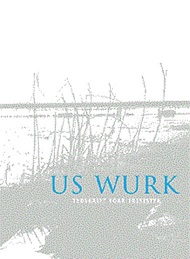Taalideology, taalnoarm en taalsimplisme I
Abstract
The Algemiene Fryske Underrjocht Kommisje (AFUK) is an institution that offers coursesin Frisian for adults. It moreover publishes textbooks in Frisian and children's books. The
AFUK gives a great deal of attention to the Frisian standard. In 1985 the Board of this
institution adopted a new standard, at first meant for internal use only, but ultimately for
general use. In this article I examine how the AFUK applies its own standard in practice. To
this end I critically perused the first textbook extensively implementing the new standard,
Dick Eisma's Tiidwurden (= Verbs) (1989). I study Eisma's ideas concerning strong verbs
and compare them with those found in the Frysk Wurdboek; Frysk-Nederlânsk, published in
1984 by the Fryske Akademy. Eisma, quite in conformity with the AFUK's decision of 1985,
made it the basis of his own description. In order to acquire a better insight into the
(frequently tacit) language ideology in both Tiidwurden and the Frysk Wurdboek I
considered them within the framework of nine other works describing strong verbs: Waling
Dykstra's dictionary (1900-1911) and eight grammars, the earliest being from 1863, the latest
from 1985. In this way I describe the general language-ideological views with respect to
strong verbs. Towards the end of my article, which is going to appear in two instalments, I
give an alternative for Eisma's descriptive model in Tiidwurden.

